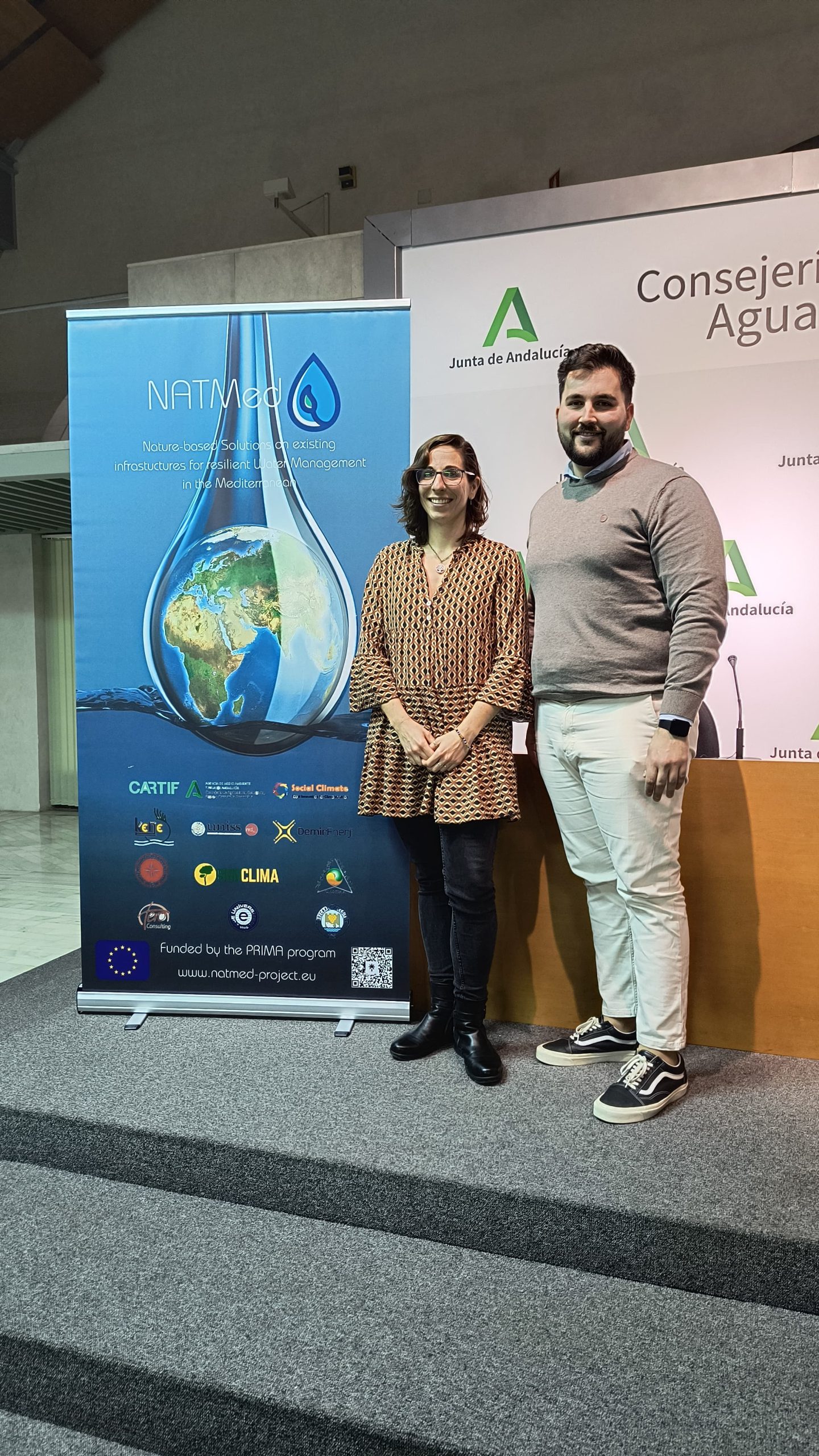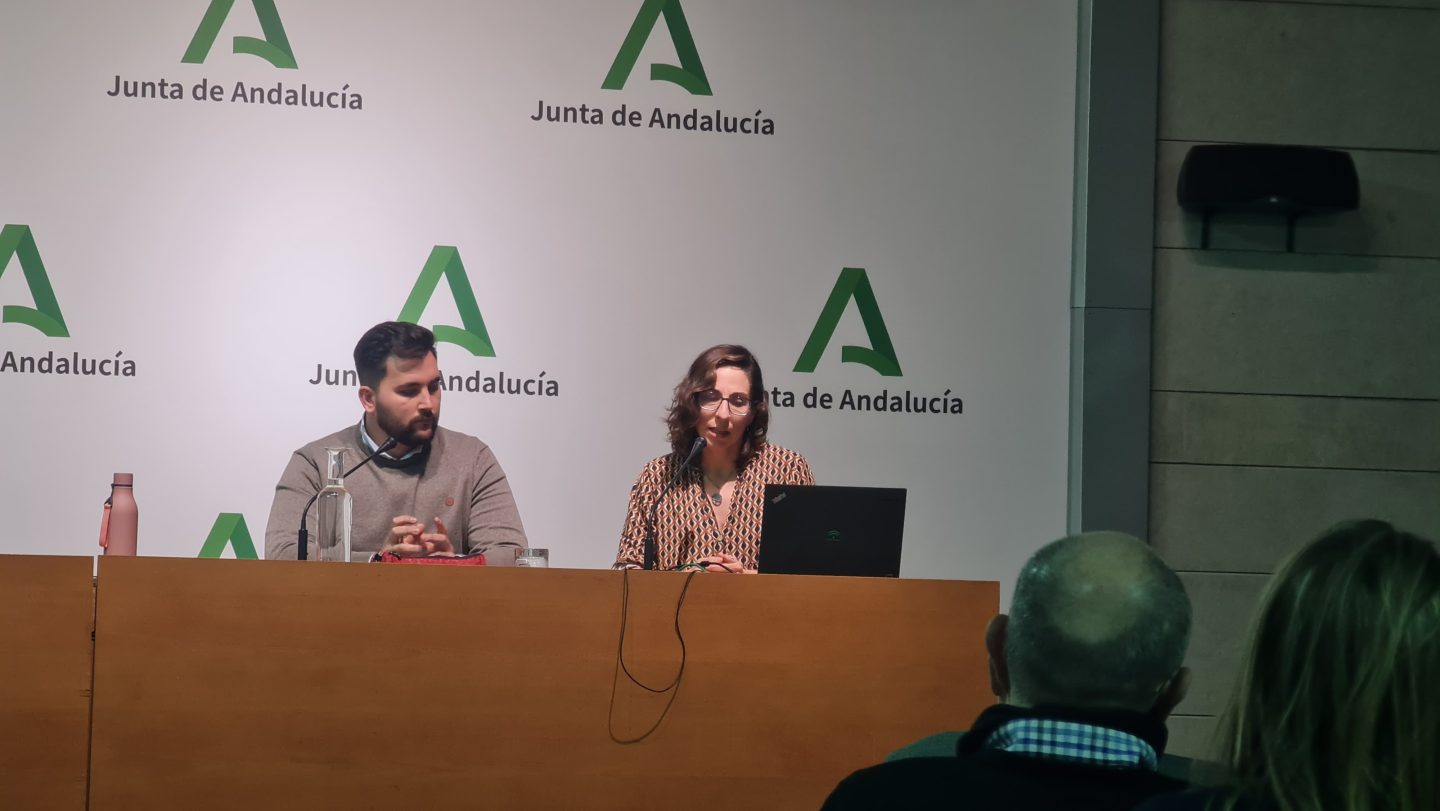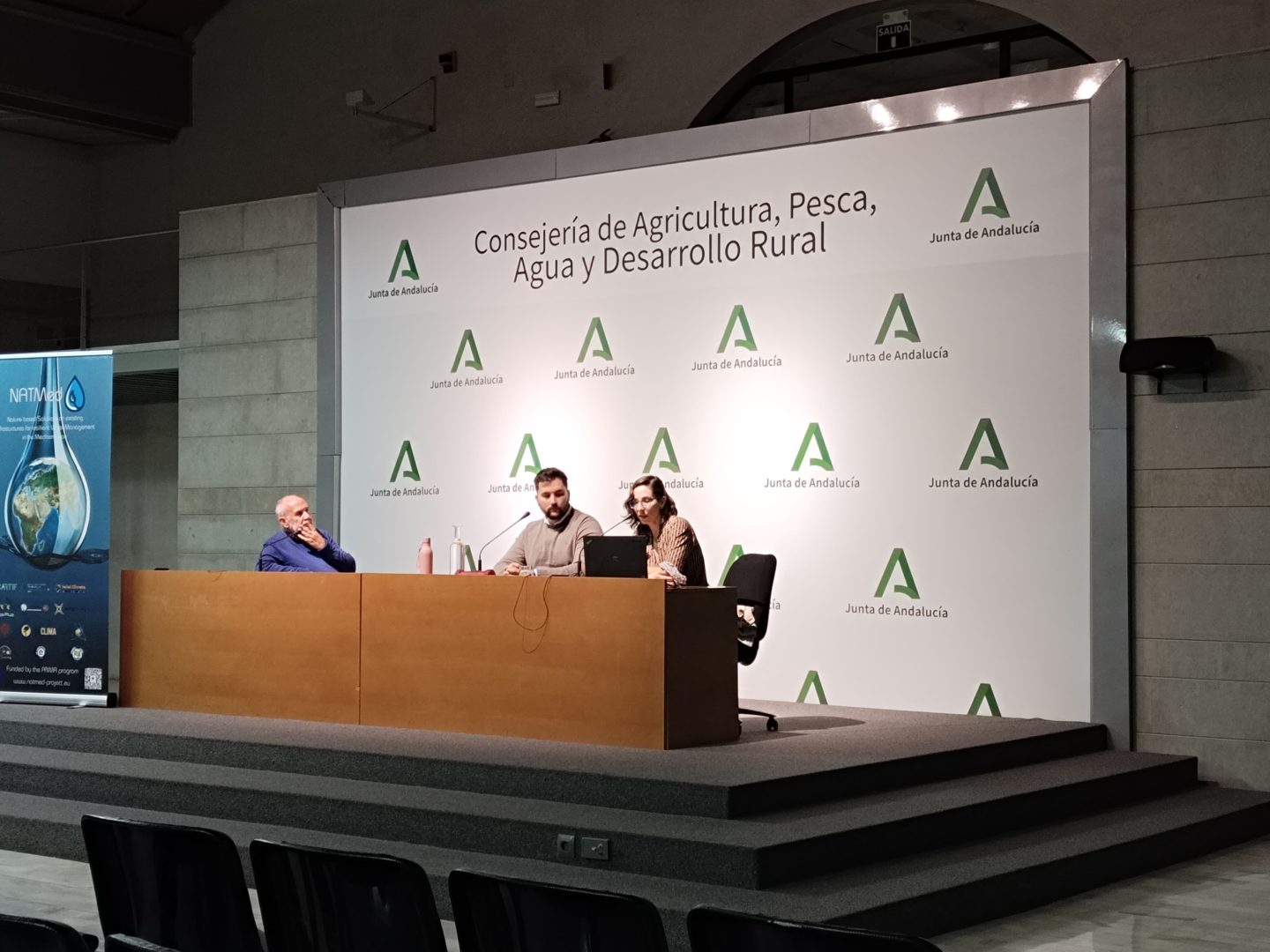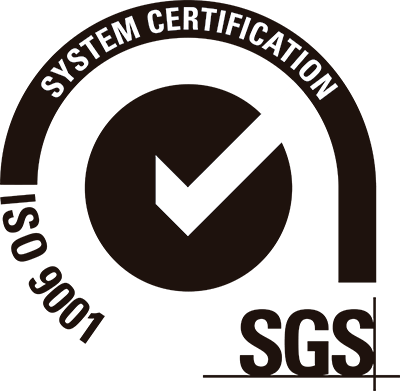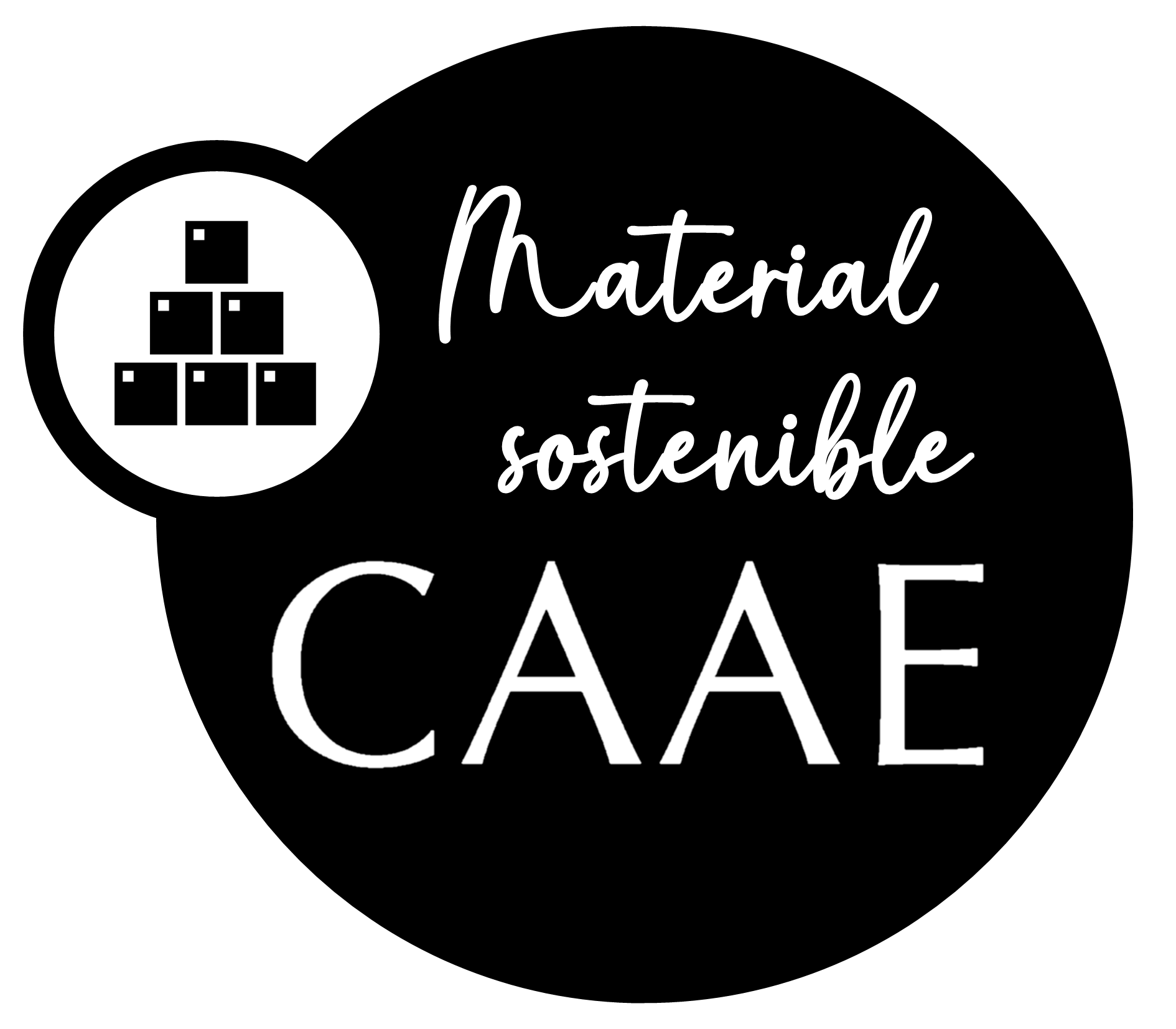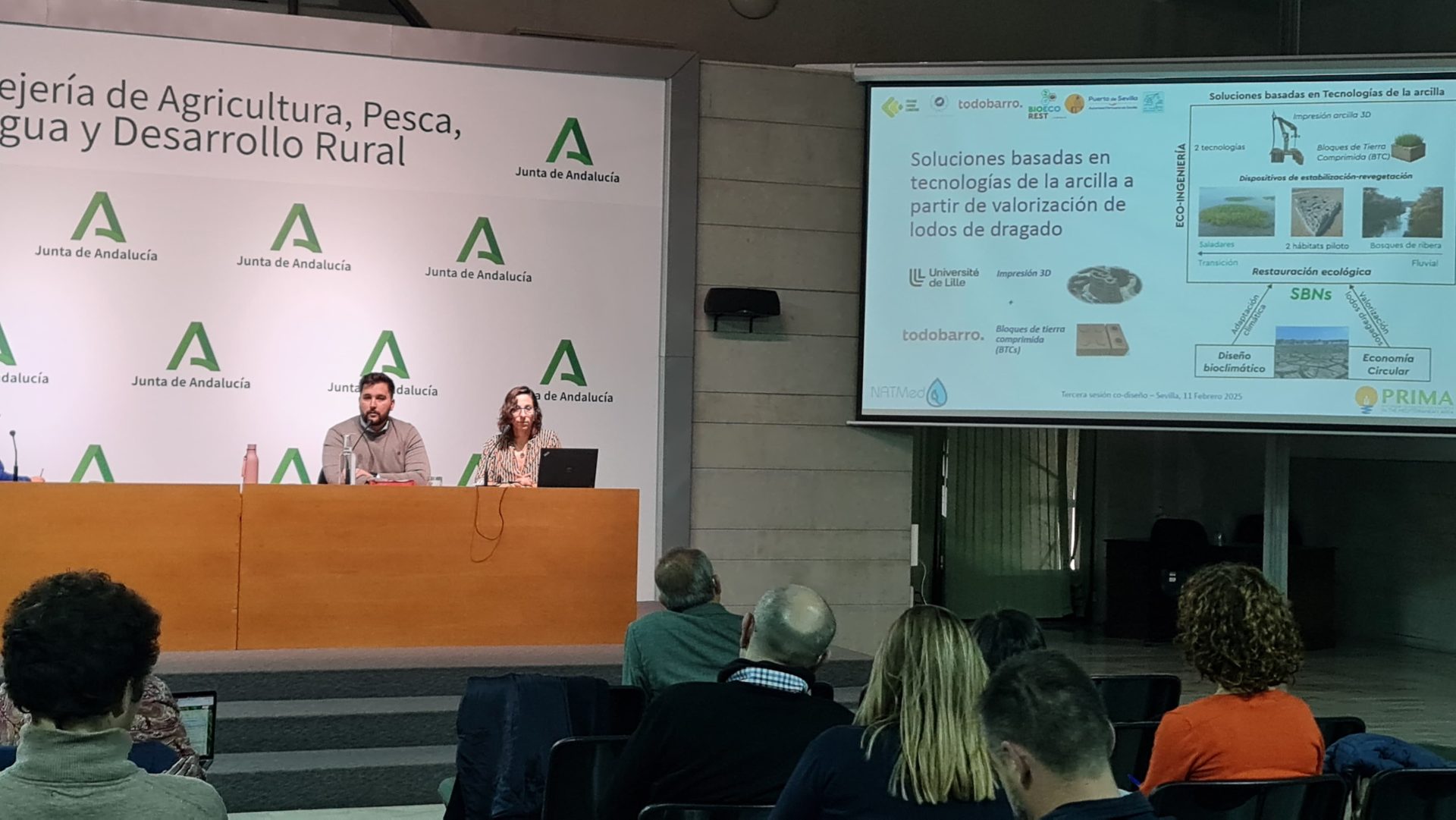
BIOECOREST presented at NATMed (MedCop)
We participated in the third session of NATMed, which organizes a conference on Nature-based Solutions
NATMed is an initiative funded by the European Union through the PRIMA program, which works with Nature-based Solutions. These NbS are “integrated into existing greywater and natural water infrastructures and based on specific phases of the water cycle, in order to optimize water-related and water-dependent ecosystem services”, in the context of the water crisis facing the Mediterranean basin as a result of the climate crisis.
NATMed is sponsoring a NbS conference, and in the framework of a session entitled “Exhibition of Good Practices” with respect to water resources management, we presented the BIOECOREST project in its fluvial version, together with the Chair of Climate Change (UMA), and the Port Authority of Seville. The aim of our intervention is to explain the project and provide an interdisciplinary vision that combines ecology and circular economy in an environment of public-private collaboration.
The river version of the BIOECOREST project
We presented at NATMed the version of the BIOECOREST project that we developed in the fluvial context. As we explained in our presentation, we use the sludge from the dredging of the Guadalquivir, in collaboration with the Port Authority of Seville, to create compressed earth blocks and other mud devices to restore riparian forests, improve biodiversity and recover ecosystem services in eroded areas on the river banks.
The opportunity to extend the BIOECOREST project to the banks of the Guadalquivir (we explain here the marine line of the project) arises from our collaboration with the Port Authority of Seville, with whom we are also developing the project for the revalorization of the river’s dredged sludge and its insertion in the circular economy circuit.
The Port of Seville, within the SAFARI Project
In this section of the project, two initiatives converge. In parallel to the development of BIOECOREST and the river sludge revaluation project, the Port of Seville was selected as one of the pilot ports in the framework of the SAFARI project (Safe, ClimAte Resilient Infrastructure), co-financed by the European Union under the Horizon Europe program (Grant Agreement Number: 101147432) and coordinated by the Université de Lille (UdL, France).
This project aims to strengthen the resilience of port infrastructure to extreme weather events through the application of innovative technologies such as artificial intelligence (AI), the Internet of Things (IoT) and 3D printing.
Bringing together the opportunities for sludge valorization, the technological potential for scaling solutions through SAFARI and the bioclimatic and environmental innovation of todobarro, the projects join forces for the creation of new solutions for river eco-engineering.
Participation in NATMed
As explained by Raquel Sánchez de Pedro Crespo, head researcher in charge of the project, our participation in NATMed arose through an invitation from the Chair of Climate Change at the University of Malaga, a key alliance of todobarro in the development of innovative projects in bioclimatic and environmental issues.
The Chair as a reference in the application of nature-based solutions (SbNs) proposed to present this emerging company among its current initiatives, given that the actions presented at the event revolve around the improvement of water resources and natural and agri-food systems in the context of the Guadalquivir River.
The conference has been an enriching experience of exchange of ideas between different actors (administrations, academia and companies), where we have contributed to the evaluation of SbNs case studies through mixed working groups.
